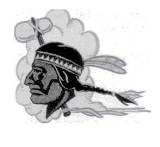
21st Pursuit Squadron
Encyclopedia
The 21st Pursuit Squadron is an inactive United States Air Force
unit. It was wiped out in the Battle of the Philippines (1941–42). The survivors fought as infantry during Battle of Bataan
and after their surrender, were subjected to the Bataan Death March
, although some did escape to Australia. It was commanded during this period by William Dyess
, who escaped from captivity and provided a widely-published account of the Death March atrocities. The unit was never remanned or equipped. It was carried as an active unit until 2 April 1946.
United States Air Force
The United States Air Force is the aerial warfare service branch of the United States Armed Forces and one of the American uniformed services. Initially part of the United States Army, the USAF was formed as a separate branch of the military on September 18, 1947 under the National Security Act of...
unit. It was wiped out in the Battle of the Philippines (1941–42). The survivors fought as infantry during Battle of Bataan
Battle of Bataan
The Battle of Bataan represented the most intense phase of Imperial Japan's invasion of the Philippines during World War II. The capture of the Philippine Islands was crucial to Japan's effort to control the Southwest Pacific, seize the resource-rich Dutch East Indies, and protect its Southeast...
and after their surrender, were subjected to the Bataan Death March
Bataan Death March
The Bataan Death March was the forcible transfer, by the Imperial Japanese Army, of 75,000 American and Filipino prisoners of war after the three-month Battle of Bataan in the Philippines during World War II, which resulted in the deaths of thousands of prisoners.The march was characterized by...
, although some did escape to Australia. It was commanded during this period by William Dyess
William Dyess
William Edwin "Ed" Dyess was an officer of the United States Army Air Forces during World War II. He was captured after the Allied loss at the Battle of Bataan and endured the subsequent Bataan Death March. After a year in captivity, he escaped and spent three months on the run before being...
, who escaped from captivity and provided a widely-published account of the Death March atrocities. The unit was never remanned or equipped. It was carried as an active unit until 2 April 1946.
Lineage
- Constituted 21st Pursuit Squadron (Interceptor) on 22 December 1939
- Activated on 1 February 1940
- Inactivated on 2 April 1946.
Assignments
- 35th Pursuit Group35th Fighter WingThe 35th Fighter Wing is an air combat unit of the United States Air Force and the host unit at Misawa Air Base, Japan. The 35 FW is part of Pacific Air Forces Fifth Air Force.-Mission:...
, February 1940-15 January 1942
- Attached to 24th Pursuit Group24th Pursuit GroupThe 24th Pursuit Group is an inactive United States Air Force unit. It was wiped out in the Battle of the Philippines . The survivors fought as infantry during Battle of Bataan and after their surrender, were subjected to the Bataan Death March, although some did escape to Australia. The unit was...
, 1 October 1941 – 2 April 1946
Stations
- Moffett Field, California, 1 February 1940
- Hamilton Field, California, 10 September– October 1941
- Nichols FieldNichols FieldNichols Field was a U.S. military airfield located south of Manila in Pasay City and Parañaque City, Metro Manila, Luzon, the Philippines. During the World War II era, it was the location of the Far East Air Force's U.S. 20th Air Base Group. Also, based here was Troop F of the U.S. 26th Cavalry...
, LuzonLuzonLuzon is the largest island in the Philippines. It is located in the northernmost region of the archipelago, and is also the name for one of the three primary island groups in the country centered on the Island of Luzon...
, Philippines, 1 November 1941 - Bataan AirfieldBataan AirfieldBataan Airfield was a former wartime United States Army Air Forces airfield on Luzon in the Philippines. It was overrun by the Imperial Japanese Army during the Battle of the Philippines...
, LuzonLuzonLuzon is the largest island in the Philippines. It is located in the northernmost region of the archipelago, and is also the name for one of the three primary island groups in the country centered on the Island of Luzon...
, Philippines, c. 4 January– April 1942
- Air echelon operated from: Del Monte Airfield, MindanaoMindanaoMindanao is the second largest and easternmost island in the Philippines. It is also the name of one of the three island groups in the country, which consists of the island of Mindanao and smaller surrounding islands. The other two are Luzon and the Visayas. The island of Mindanao is called The...
, Philippines C. 8 April–May 1942

